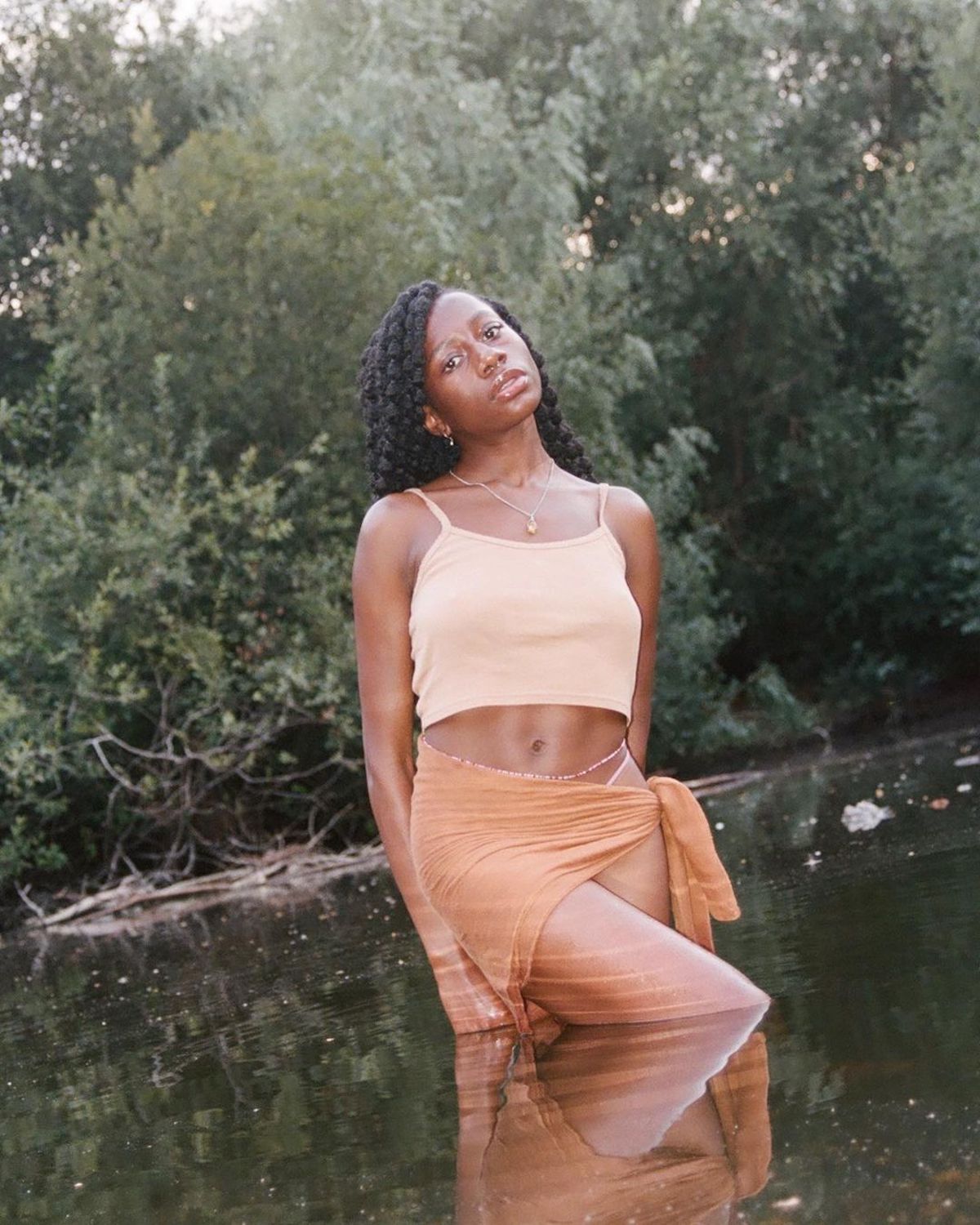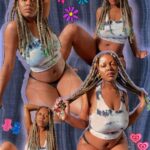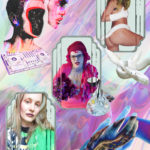You have many talents in a lot of different fields ranging from being a visual…
BINA.
Interview with the South London-based musician25 February 2021
Next up in our 2021 BHM series is BINA. (@binaofficial), a musician based in South London Inspired by the sounds of Neo-Soul and Jazz, BINA. As well as creating and producing music, BINA. also works as a model and an artist. YEOJA Mag spoke with BINA. about how she uses singing as her emotional outlet, prioritising self-care within the Black community, and the importance of being unapologetically yourself.
When did you start your musician journey and why did you start?
BINA.: I would say my musical journey began two and a half years ago. I had been writing before but that was more learning how to put songs and music together, and just how to write in general.
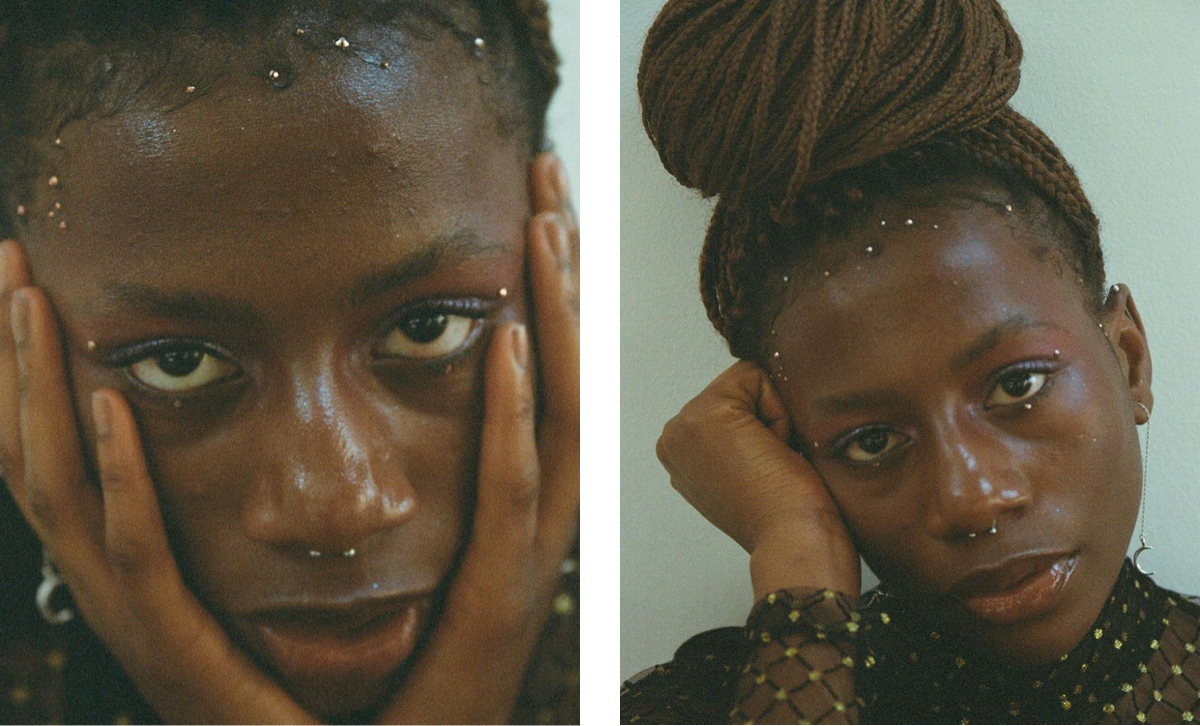
Makeup + styling: @_shakirawright
Hair: @braidzbybeenz
As this interview series is for BHM, may I also ask you what your origins are?
BINA.: I was born and raised in South London, but my heritage is Nigerian. My mum is Efik and my dad is Igbo. My dad came to this country when he was quite young, and by the time he had us he thought that he was just gonna raise British kids because it would make us more privileged. But really, I think it just ultimately leaves us quite culturally stunted. I wish I knew how to speak my language [Igbo] well. I only know very little, like how to say greetings; but I have every intention of learning. Even though it’s not a language with mad online resources, I can learn and I will learn.
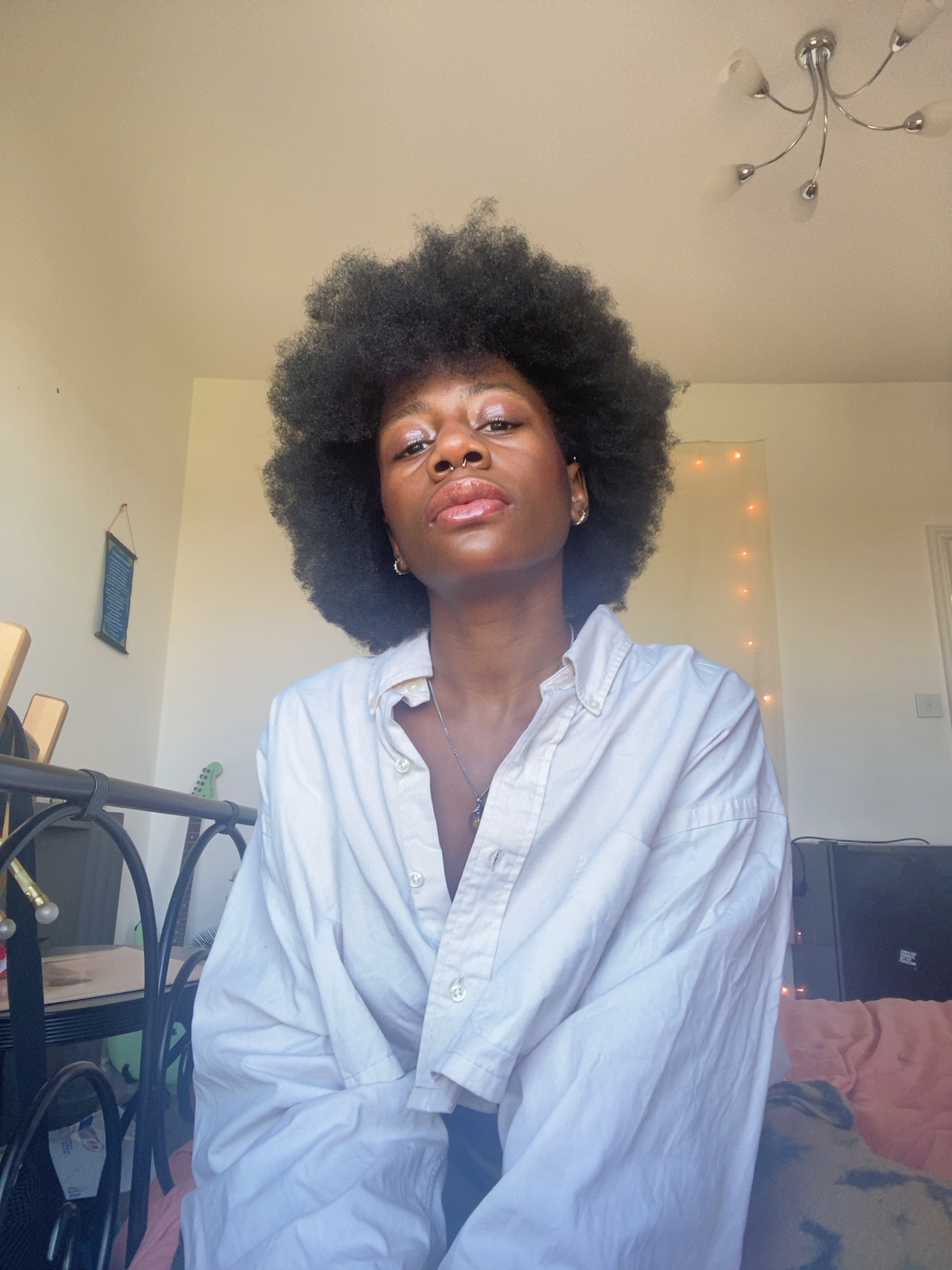
When you perform, the audience can feel the strong energy you send out. What motivates you to sing? Is there a specific message you want to send out to your listeners?
BINA.: So what motivates me to continue singing, having found out I can, is that it’s an outlet for me. It’s quite soothing. I sing quite a lot of the time even if just doing casual activities. A lot of it is kind of personal therapy.
It’s also the fact that, you know, talking honest shit, it helps people to relate and not feel alone in their experiences. My intention is to make people feel something when they listen to my music. The main thing is for [my listeners] to relate – they’ll hear a lyric and they’re like shit that’s my life to a T.
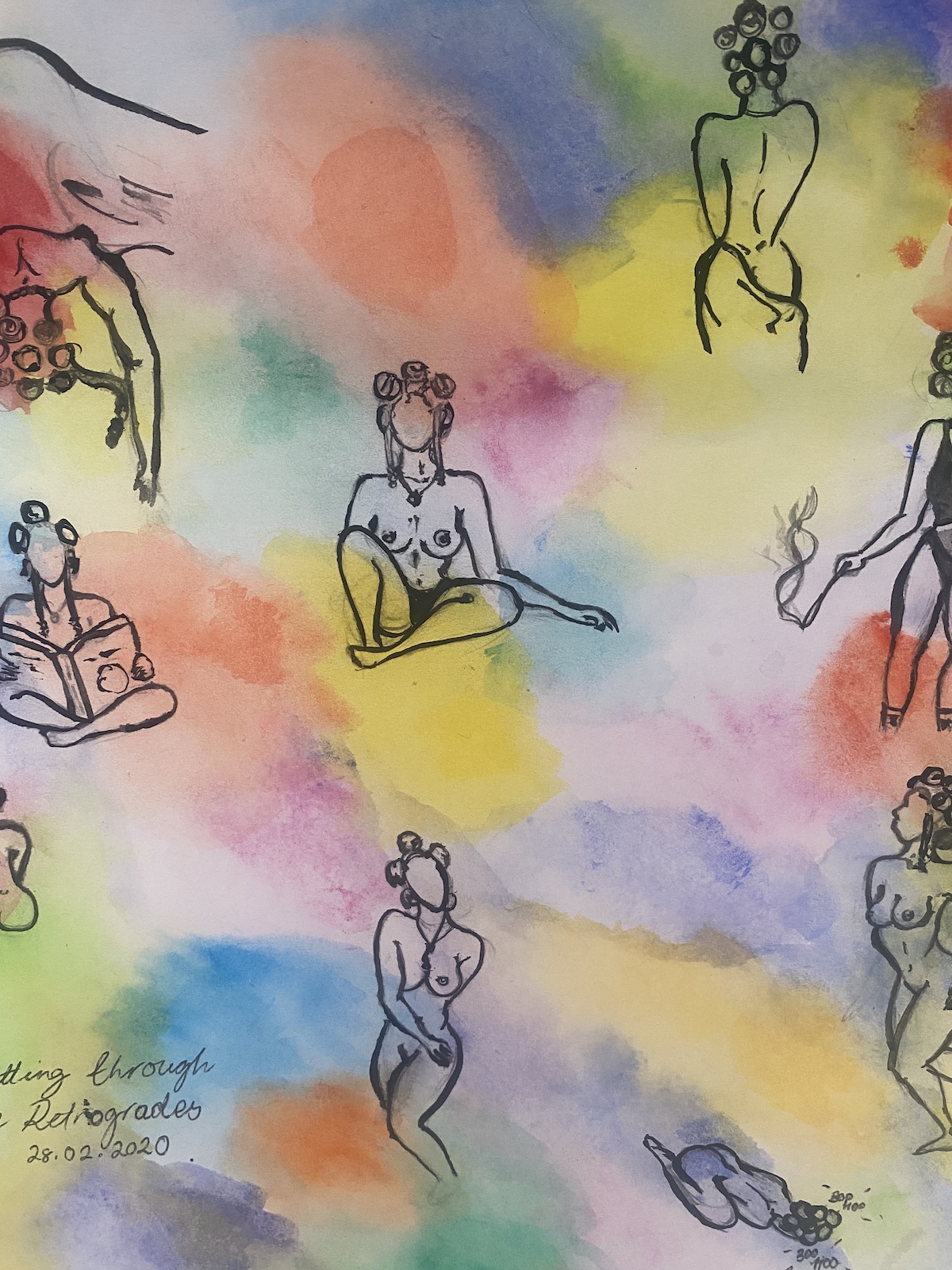
One of our favourite songs is “Caged Bird”. Could tell us a bit about the process behind creating this song?
BINA.: I remember this process very vividly because the main bulk of the song was written at night in 2018. It was the first year of music college, where I just did a whole lot of writing and I felt very inspired.
I can’t always express what is going on in my head; instead I’ll sing. I’m not necessarily singing because I’m happy, and actually a lot a lot of the time I’m singing because I need an outlet. When I wrote “Caged Bird”, it was inspired by my childhood and how I grew up.
At the time of writing it, I was feeling very trapped emotionally in terms of being able to communicate with people or feeling that people weren’t even hearing me. I felt this way whether it was at home with my parents or with my first foster parent, who I didn’t really have a great experience with. I wrote that song a year after I first moved from my first foster care home to my second foster carer, who I’m still living with and who is basically my mum now.
Some people interpret it differently, they hear the song and think it’s about love and messed up emotional or romantic relationships. But it’s actually about my childhood and how and why I went into myself and soothed myself by singing.
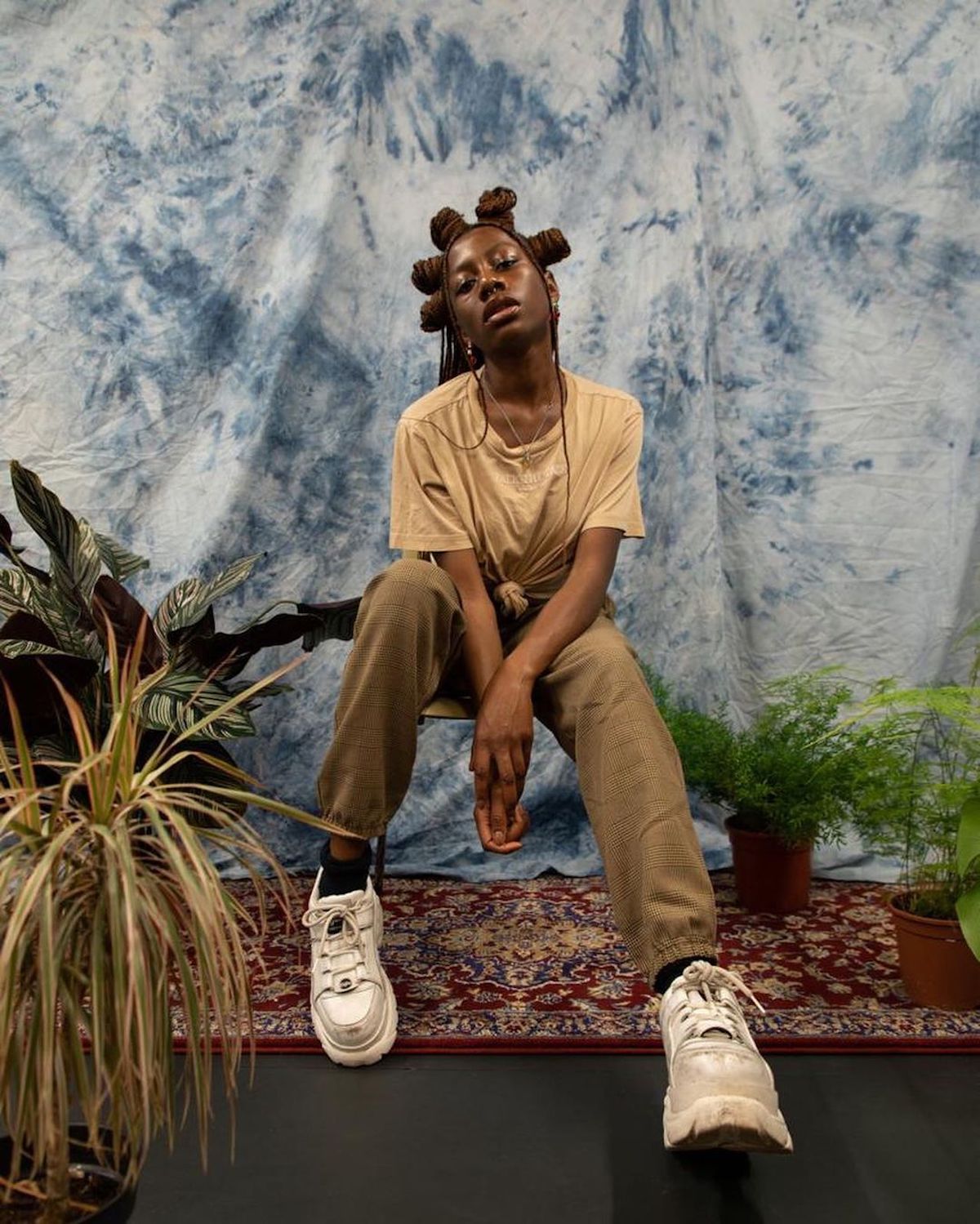
How did you end up collaborating with Kish (@kishfantastic)?
BINA.: Yo that was so sick, because I had done the freestyle, had recorded my part of the song in my room, and then showed it to Kish’s friend, this producer called my TN (@TN_490), who knew someone who would sound sick on it. The funny thing is, I hadn’t met Kish at all, and the whole collaboration happened virtually. I just messaged him on instagram, and Kish came through and versed on there. I was so happy that it was able to happen that way.
View this post on Instagram
How much has your Black heritage influenced your creativity? What does it mean to you?
BINA.: I think that the Blackness comes through in a lot of facets. I think that for me, Blackness or being a Black womxn is a large part of my identity. I don’t feel like I force it, I just feel like it comes naturally to me. I think Blackness is such a complex identity because with a lot of it, you’re always having a tug of war between assimilating or being counter-culture. Or just sometimes being counter culture is a simple act of being yourself but some people feel they need to assimilate for whatever reason to make their lives easier.
For me personally, I think that being Black is just being unapologetic and being yourself. So I think that I shy away from anywhere that makes me feel like I can’t speak candidly, or anywhere I feel like I can’t do certain things like wear my hair how I want to wear it. People make the mistake of thinking embracing your Blackness is to shun other cultures and it’s really not. It’s like in the same way that white people can walk through the world head high, I think well, so can I.
My expression of Black lives mattering is living my life to the absolute full and not shying away from my Blackness. Although I haven’t been to Africa yet, the fact I have the African skin, Afro hair, [a Nigerian] name, and grew up with Nigerian parents, means that I can’t escape [my Blackness] — and I don’t want to.
With my visual art, many of my characters are represented as Black characters, because that’s what I know. The femxle characters are often a stylised fantasy version of myself or other Black femxle characters. Although their skin is painted purple rather than Black, there’s stuff there that’s showing Blackness – like the hairstyles, the curves, the features, and the build. It’s very much centered in the Black experience.
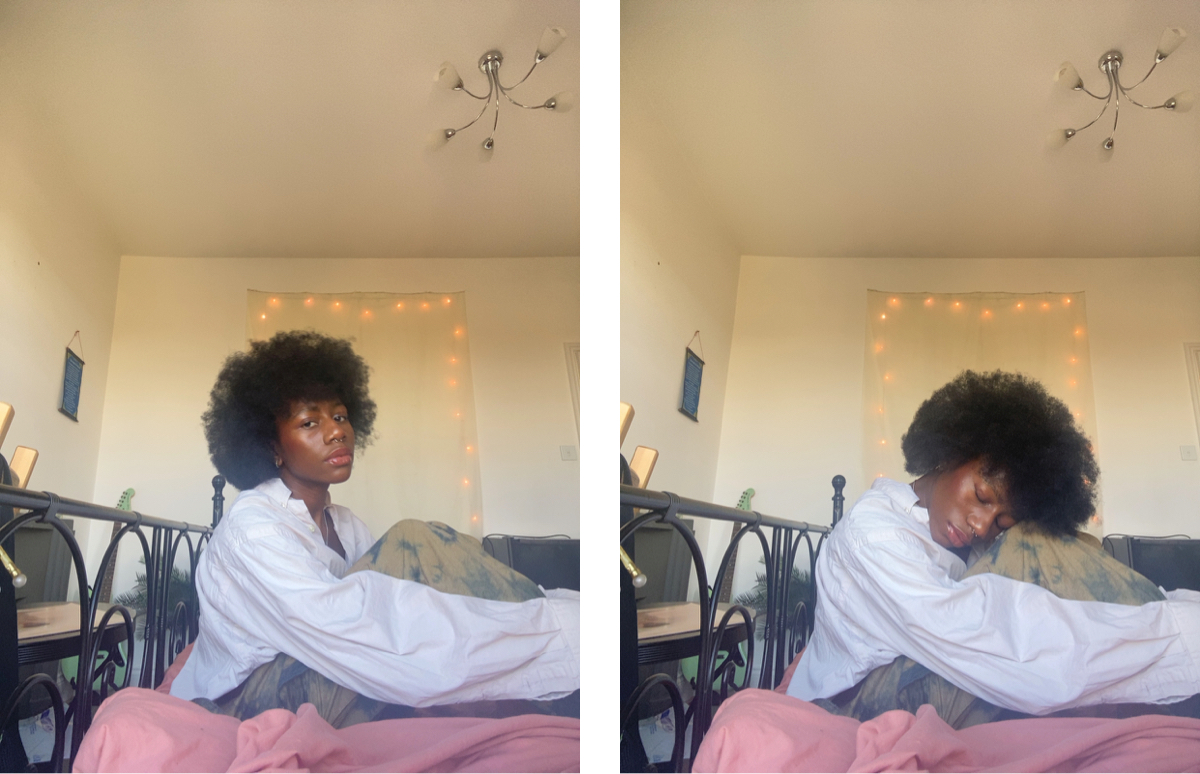
How has the black lives matter movement in 2020 affected you and your mental health?
How did you react to the situation?
Bina: To have to explain why Black lives matter in 2020 is actually demonstrating how backwards we are, and the world is, in a lot of social affairs. I deliberately spent a lot of time away from social media when it was first starting, because it can be quite draining emotionally, and I’m really grateful I didn’t see any graphic images of anyone being killed.
There’s more people trying to talk about it, and everyone’s protests mainest in different ways. One thing I did find a bit frustrating is how other people sometimes watch how other people respond; even within the community. I don’t want to seem like a bad guy if I don’t post, and I had to explain to one of my friends, I’m not being quiet because I don’t care, I’m being quiet because I’m being mindful and I need to think [about what I post]. I think it’s important not to get caught up in bandwagon culture or post just because everyone around you is posting something.
Everyone should just do what they can to raise awareness, whether that’s going on the streets and protesting, speaking with their friends, or just being unapologetically Black. I also think that everyone should have discussions and keep the discussions going; especially white people. And white people shouldn’t feel attacked when topics relating to BLM come up, and instead just listen to what is being said.
I’m still just watching how things unfold and learning how to navigate everything pertaining to BLM, as there are new stories everyday, and new reasons to be angry everyday. I’m just always trying not to lose my shit. I still think there’s a lot of work to be done, but I think it’s important for us all as Black people to always remember to always try and take care of ourselves. My movement in itself is being myself and being Black. Daily life is kind of a process in itself.
And how has racism influenced you?
BINA.: I think that I haven’t experienced a lot of overt racism. I live in London, and whatever form of racism that I would have experienced would have been passive and indirect. A lot of the feelings about racism I have are from seeing fellow Black people being mistreated.
When I hear about racism experienced in London, it’s more in the form of microaggressions. There are less incidents of people being blatantly racist. That doesn’t mean it’s not there, it’s just a little harder to detect – like when someone insults you and you don’t know if they’ve insulted you [because of your race] or not. There’s also a lot of structural racism, which is something I think about a lot.
What I have experienced is a lot of naivety. Sometimes when speaking to white people, they are just not very educated on [Black] culture. I can’t speak about Europe as a whole, but I can speak about Britain specifically: as a huge [colonial entity] – it’s forced [its version of history] and its presence down other peoples throats. Meanwhile [the British themselves] don’t feel like having to know about other [cultures]. I find this kind of mindset quite toxic.
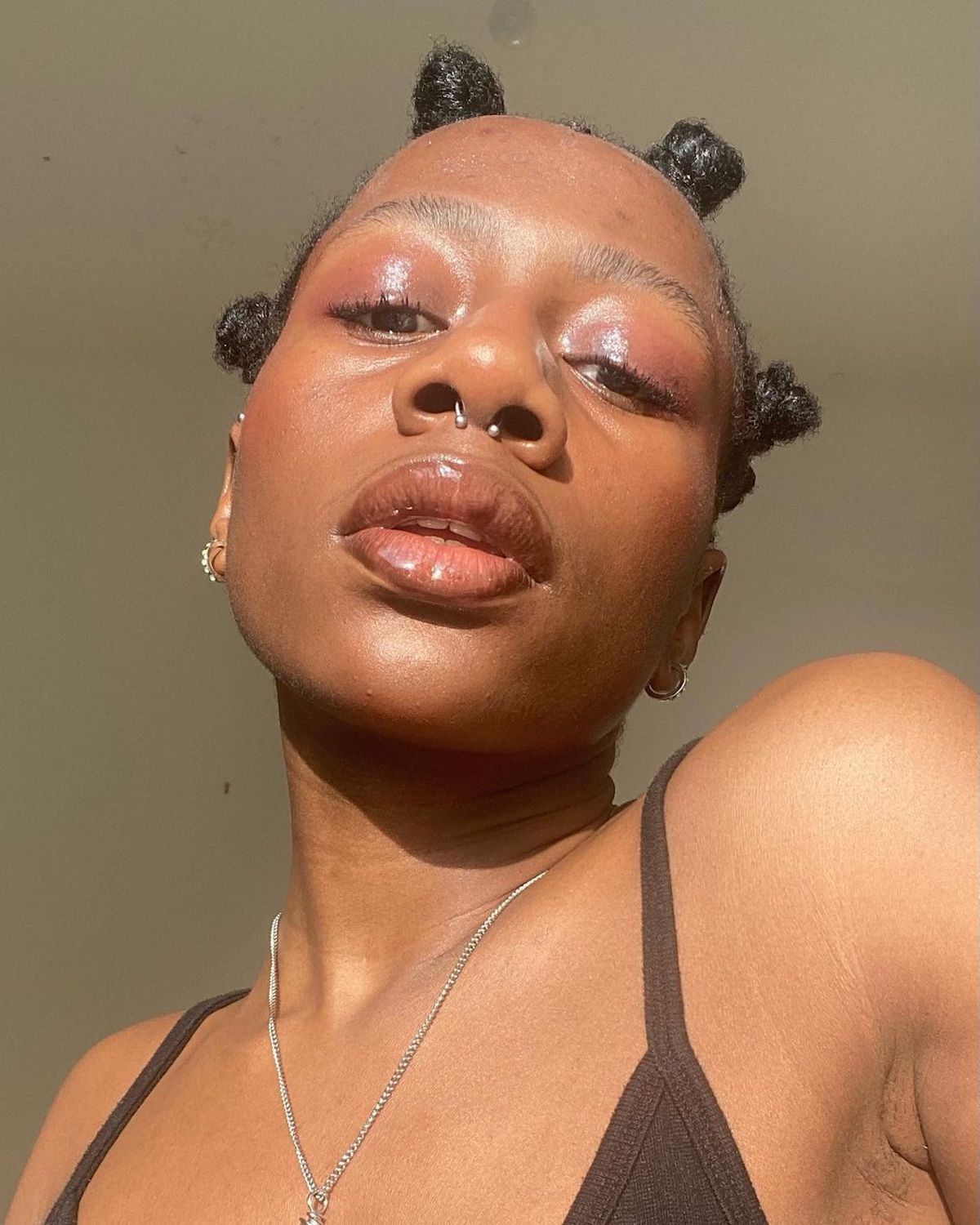
What advice would you give to other young Black girls today?
BINA.: It’s not easy being a young Black gxrl or womxn in this world, and you have to do what feels right for you. I have younger sisters and one sister often comes to me and asks me “is it okay if I do this?”. For example, how it would look if she posted herself with her afro on her page. And I’m like, just do it!
You just need to be unapologetically yourself, as that’s the only way people are gonna make room for you. Just be yourself and find your sauce [sic] in yourself because everyone’s sauce [sic] is different. I also think that Black culture is so multifaceted and multidimensional, and there are so many identities to have as a Black person. It’s like a different cocktail of different ingredients, and you’ve just got to embrace the ingredients that make you you.
_
Images both taken by Fiona Quadri for YEOJA Mag and provided by BINA.. Top image: @lekkyfromse. To follow BINA. on Instagram, click here. For more interviews, click here. For more BHM articles, click here.



